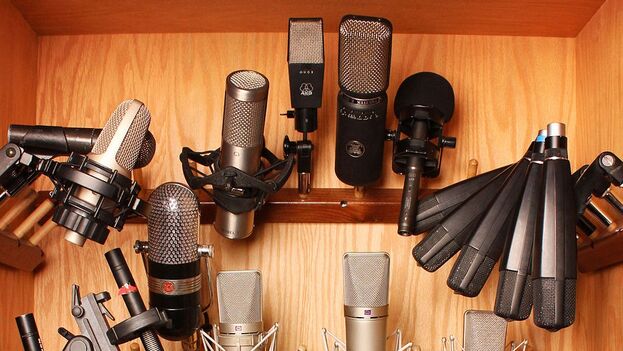
![]() 14ymedio, Yoani Sanchez, Generation Y, Havana, 5 December 2019 — For decades, we Cubans have lived under a strict information monopoly that has turned the public media into sounding boards of the Communist Party. Instead of journalism, what is published every day in national newspapers and broadcast on television and radio is closer to ideological propaganda.
14ymedio, Yoani Sanchez, Generation Y, Havana, 5 December 2019 — For decades, we Cubans have lived under a strict information monopoly that has turned the public media into sounding boards of the Communist Party. Instead of journalism, what is published every day in national newspapers and broadcast on television and radio is closer to ideological propaganda.
In this way, several generations have become accustomed to finding in the national media only a version of reality, a limited part of the everyday stories and a single voice to try to narrate a polyphonic and diverse country. In a premeditated manner, the Plaza of the Revolution has excluded a diversity of information and has condemned the entire population to a discourse without nuances.
But, is this really a press or is it a political publicity that has taken over the microphones and pages of the national news? Without a doubt, it cannot be called “journalism.” Because any news work must include and shed light on a diversity of sources, opinions and judgments that go beyond what a single individual, a single human group or a single Party thinks or experiences.
We Cubans have lived so long under this “pseudo press” that a process of collective dismantling of these journalistic vices is necessary to be able to demand and encourage plural, inclusive and truthful media. Accommodating multiple opinions, presenting readers with several views on the same event and putting data ahead of adjectives, these are the first steps to achieve it.
But also, as readers, listeners and viewers we have to learn to respect the variety of approaches that a situation, a proposal or a public figure can generate. A diversity of opinions never detracts, rather it gives the audience the ability to form more complete, mature and serene judgments about any event.
The press cannot be propaganda at the service of a few, nor can it behave like a ventriloquist’s doll managed by a single group and forced to repeat its slogans to the letter. Journalism, when it is good, can be painful, uncomfortable or annoying. Trying to turn it into something docile and malleable only takes away what distinguishes it from the pamphlet.
If we are going to demand a free, democratic press with professional standards, let us prepare ourselves for the fact that many times it will publish issues that annoy us, opinions that we do not agree with and will also give space to signatures that oppose our positions. There will be days when we smile when reading the newspaper and others when it will leave a bitter taste, which will make us want to respond and complain. That is what we have to expect from good journalism: that it mobilizes us, shakes us, makes us rethink our opinions and evaluate those of others. To remove those thorns from the press is to reduce it to simple propaganda.
COLLABORATE WITH OUR WORK: The 14ymedio team is committed to practicing serious journalism that reflects Cuba’s reality in all its depth. Thank you for joining us on this long journey. We invite you to continue supporting us by becoming a member of 14ymedio now. Together we can continue transforming journalism in Cuba.
